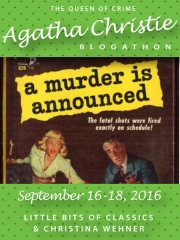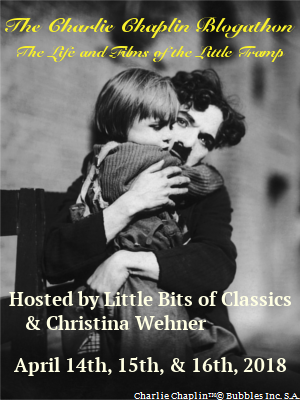 When I reviewed the film The Prince and the Pauper I wrote that the movie was a reasonably faithful adaption of the book, though I hadn’t read it since I was a child. After reading it again, I have concluded that it is indeed a reasonable adaption, though there are a number of notable differences that I had forgotten.
When I reviewed the film The Prince and the Pauper I wrote that the movie was a reasonably faithful adaption of the book, though I hadn’t read it since I was a child. After reading it again, I have concluded that it is indeed a reasonable adaption, though there are a number of notable differences that I had forgotten.
The Prince and the Pauper, published in 1881, seems to blend the Cinderella archetype with the rich-person in-disguise-who-discovers-how-people-really-live archetype.Tom Canty is a beggar and Edward is the son of Henry VIII. When they meet by chance and exchange clothes, they realize that they look alike and that apart from the clothes, there is no way to tell who is prince and who is beggar (though Tom’s mother can tell them apart later – unlike everyone else, she truly knows her son and his unique quirks; there seems to be no one who truly knows Edward).
This brings up another theme: the difference between a king and a beggar is only the clothes and the way he is treated by others.
But after Tom and Edward change clothes, the prince goes outside and is mistaken for the beggar and thrown off the palace grounds while all the nobleman assume Tom is really the prince. They account for the fact that he denies being the prince, and that he seems to have forgotten important information, by assuming that he has temporarily lost his mind. Meanwhile, Edward goes about London in his ragged clothes proclaiming that he is the prince and people assume likewise that he is mad.
But Edward’s identity of prince is so deeply ingrained in him by education that it honestly never occurs to him that people might find it difficult to believe he is who he says. He is the prince and so he assumes that it should be enough for him simply to declare himself. he doesn’t adapt particularly well to his new surroundings and requires a rescuer in Miles Hendon, a soldier of fortune. Tom, on the other hand, initially denies being the prince, but adapts to the situation fairly well. He learns how to put on lordly manners, pumps his whipping boy for important information he ought to posses as prince and learns to minimize the kind of talk that leads people to assume he’s deranged. He even learns to like being prince and awes the lords and ladies with his wisdom in administering law.
The Prince and the Pauper is a charming story, a bit like a fairy tale and like fairy tales, with a dark underside. Twain is very interested (as he was later in A Connecticut Yankee in King Arthur’s Court) in the injustices of the period, the superstition, the abject poverty and crime, the religious intolerance that would lead two Quakers to be burned at the stake, the death penalty for even the most paltry of crimes. It’s an eye opener for the young prince. It’s an eye opener for Tom Canty, as well, who discovers that the laws seem to be upheld simply because they are laws and not because any one actually believes them to be good.
It’s an historical, adventure, fairy tale. Edward has the most adventures and meets the most colorful cast of characters, like the hermit who believes himself to be an archangel, the Ruffler, who runs a gang of beggars and thieves, and Miles Hendon. Hendon is good-humored and dashing, likes to talk to himself cheerfully and essentially adopts Edward. He likes his spirit, even if he does think his mind is touched, and is resolved to cure him. Hendon’s story is entirely left out of the film. He’s a younger son who’s even young brother has stolen his home, his title and his beloved. In a mirror situation to Edward, no one believes Miles when he returns home and he is declared to be a lunatic and driven away.
What makes Hendon a good man is not that he believes Edward, but that he is kind to him. That seems to be another theme of the book. It is not important to know who a person is or have faith in them or know position, but it is important to treat them with humanity. There is a judge who pretends that the item Edward is thought to have stolen (he was framed) is worth less than it is, because all thefts over a certain price are punishable by death. There is the kind cottager and her children who feed Edward. They don’t do it because they believe he’s the prince, but simply out of goodness.
Twain must have been fascinated by the concept of exposing the injustices of the past by having previously cloistered royalty suffer the sting of their own laws, because he reused the concept in his 1889 A Connecticut Yankee in King Arthur’s Court (which set out to satirize Arthurian chivalry and somehow ended on a note of horrifying technological warfare and despair). In A Connecticut Yankee, there is a stranger who gains power (like Tom) and is able to bring a stranger’s fresh eyes to reshaping the unjust and illogical laws, while King Arthur travels the countryside disguised as a beggar and learns about the injustice and poverty and disease rife in his land (even nearly being sold into slavery).
 A significant difference between the book and the movie is that in the book there is no plot by the Earl of Hertford to steal Edward’s throne. In the book, he is a good and humane man, nothing like Claude Rains’ schemer (though I’m not complaining about the changes, since I love it when Claude Rains schemes). Tom’s mother and sisters are likewise removed from the movie for the sake of simplicity and the more episodic nature of the book is streamlined.
A significant difference between the book and the movie is that in the book there is no plot by the Earl of Hertford to steal Edward’s throne. In the book, he is a good and humane man, nothing like Claude Rains’ schemer (though I’m not complaining about the changes, since I love it when Claude Rains schemes). Tom’s mother and sisters are likewise removed from the movie for the sake of simplicity and the more episodic nature of the book is streamlined.
I noticed that under the title of the book, the caption promised one hundred and ninety-two illustrations. It’s not a long book, so there must have been more illustrations than text! Too bad my copy didn’t have any of them. I would have liked to have seen them all.








The Animation Commendation
September 21, 2015 at 10:39 am
I wonder whether this incident actually happened sometime in history. Seems plausible to me.
LikeLiked by 1 person
christinawehner
September 21, 2015 at 10:45 am
Mark Twain said something nearly identical at the beginning of the book: he said ” It may have happened, it may not have happened: but it COULD have happened.”
LikeLiked by 1 person
stephencwinter
September 22, 2015 at 1:24 am
It is a book that I have never read even though I like Mark Twain very much. You encourage me to read it! I met a woman once who on becoming a bishop in the Episcopalian Church in the United States decided to visit the parishes in her diocese before taking up her office. This is a normal thing for a bishop to do but she did so disguised as a “bag lady” to see how she would be welcomed in each of the churches. You won’t be surprised to know that she met the same variety of responses that Edward met on finding himself a pauper. Right now in Europe we are confronted with thousands of refugees fleeing conflicts in the Middle East and we are responding in the same variety of ways again. I guess the poor always have this effect upon us when they knock on our doors.
LikeLiked by 1 person
christinawehner
September 22, 2015 at 9:57 am
That is a great story! It must take a lot of courage to voluntarily disguise oneself, or strip oneself of one’s position, to discover how many people are really treated.
It does give the Prince and the Pauper an unexpectedly timely and contemporary feel, especially, as you mention, with the range of reactions to the thousands of immigrants: fear, compassion, sympathy, annoyance, anger, helplessness. I wonder if some people look away from poverty because they do not know what to do or how to help and so find it easier to simply not look.
LikeLiked by 1 person